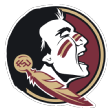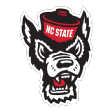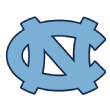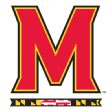Who’s the best quarterback in ACC football history? Go ahead, we’ll give you a few minutes. It’s no easy task narrowing down seven decades of QBs — from Norm Snead to Trevor Lawrence — to a single player. But that’s what we attempted to do this summer. To say there were strong disagreements would be a vast understatement. This was tough.
As hard as it was to find one QB, it might’ve been harder to land on just two running backs. How do you choose between Warrick Dunn and Dalvin Cook? Even Florida State fans wouldn’t want to make that call. Or how about defensive end, where Mario Williams, Vic Beasley and Bradley Chubb couldn’t crack the first-team selections?
The point is, the ACC has a ridiculously rich history of talent since its inception in 1953, and that legacy takes another big step forward today, with the launch of the ACC Network. As we turn the page to a new chapter, it was only fitting that we make some tough choices, run through the numbers, argue for a few weeks and come up with our all-time All-ACC team.
A few caveats: We only considered seasons in which the players were members of the ACC, so no Deion Sanders or Michael Vick or anyone from the 2001 Miami Hurricanes. Secondly, we attempted to consider the era, too. QB stats in 1970 don’t make for an apples-to-apples comparison with those from 2018. The goal was a representation of all the great eras of ACC football, so numbers weren’t the only metric used. Lastly, some résumés are still being written, so Lawrence, Travis Etienne, Bryce Hall and Andre Szmyt might well end up among the ACC’s greats, but until their careers are over, we’re not ready to add their names to the history books.
With all that in mind, here’s what we came up with. We’re sure you’ll agree with every pick. — Andrea Adelson, David M. Hale and Chris Low
Offense

QB: Deshaun Watson, Clemson
In his three seasons at Clemson, Watson changed the entire perception of the program. As a freshman, he threw for six touchdowns in his first start and ended a five-game losing streak to rival South Carolina while playing with a torn ACL. Finally healthy as a sophomore, Watson finished third in Heisman voting, accounted for 47 touchdowns and took Clemson to within a breath of winning a national title. A year later, he finished the task, setting an ACC record with 4,593 passing yards and 41 touchdowns, none bigger than his final throw to Hunter Renfrow in the end zone to win the national championship. In his career, Watson was a two-time Heisman finalist, a two-time Davey O’Brien and Manning award winner and an ACC Player of the Year, and he lost just three games as the Clemson starting QB.

RB: Warrick Dunn, Florida State
At just 5-foot-9, Dunn was never an imposing physical presence in the backfield, but underestimating his ability was a mistake. The New Orleans native burst onto the season as a true freshman, helping Florida State to a national title in 1993 with 10 touchdowns and nearly 900 yards. He rushed for more than 1,000 yards in each of his final three seasons with the Seminoles, finishing his career with 3,959 rushing yards, good for 10th all time in the ACC, and 5,273 scrimmage yards, the league’s third-best mark. He was a three-time All-ACC selection, and his career average of 6.9 yards per rush remains the best by any ACC runner with at least 350 career attempts.

RB: Ted Brown, NC State
Records are made to be broken, yet Brown still holds the ACC’s all-time career rushing yard record of 4,602, set between 1975 and ’78, a truly astounding accomplishment when you consider that every other major ACC offensive record has been reset since then. A 2013 inductee into the College Football Hall of Fame, Brown was the first player in league history to earn first-team All-ACC distinction all four years and was a consensus All-American in 1978. His 27 100-yard games rank No. 1 in ACC history, and his 49 career rushing touchdowns rank No. 3.

WR: Calvin Johnson, Georgia Tech
To simply repeat Johnson’s stats wouldn’t do justice to the player he was. You had to see Johnson at work to appreciate his impact. At 6-foot-5, he was a dominating physical presence capable of embarrassing any corner tasked with guarding him. In virtually every game he played, he was the best player on the field. He finished his collegiate career as Georgia Tech’s all-time leader in receiving yards (2,927), receiving touchdowns (28) and 100-yard receiving games (13), including racking up nine catches for 186 yards and two touchdowns in his final appearance in a Yellow Jackets uniform in the 2007 Gator Bowl. Johnson was an All-American as both a sophomore and junior, and in 2006, he won the Biletnikoff Award as the nation’s top receiver.

WR: Peter Warrick, Florida State
One of the most dynamic players in school history, Warrick dazzled with his incredible ability to make plays from anywhere on the field. His skills as a pass-catcher are obvious, but he was also the Seminoles’ go-to player for trick plays and a prolific punt returner. He was a three-time All-ACC selection from 1997 to ’99 and MVP of the 2000 Sugar Bowl, and he still holds the school record for career touchdown receptions (32). A member of the ACC’s 50-year anniversary team, he was inducted into the school’s hall of fame in 2010 and had his No. 9 jersey retired in 2018.

TE: Greg Olsen, Miami
The Hurricanes have produced some elite tight ends over the years. But in the ACC era, nobody at the tight end position compares to Olsen, who’s still playing in the NFL with the Carolina Panthers. He caught six touchdown passes during his three-year career at The U from 2004-2006. He actually started his college career at Notre Dame before transferring to Miami.

OT: D’Brickashaw Ferguson, Virginia
It’s rare to recognize offensive linemen for setting records, but Ferguson did just that during his career at Virginia. As solid, consistent and dominant as they come, Ferguson started all four years, not only becoming the first true freshman to start on the offensive line but also setting the school record for starts by a freshman with 14 in 2002. He ended up starting 49 straight games, breaking Ray Roberts’ mark for consecutive starts by an offensive lineman. Ferguson earned first-team All-ACC honors in 2004 and 2005 and became the school’s first All-American tackle since Roberts his senior season.

OG: Joe Bostic, Clemson
Bostic started all four seasons between 1975 and ’78, earning All-ACC first-team honors in 1977 and ’78. In 1977, he won the ACC Jacobs Blocking Trophy, given annually to the best blocker in the league and determined by the head coaches. In 1996, he was named to Clemson’s Centennial team and inducted into the Clemson Hall of Fame. In 2002, he was named to the ACC’s 50-year anniversary team, and he was selected as an ACC Legend in 2018.

C: Clay Shiver, Florida State
A three-time All-ACC selection, Shiver was just a sophomore when his shotgun snaps to Charlie Ward helped Florida State to a national title in 1993. He was an elite pass-blocker from the center position, allowing just half a sack over more than 700 snaps that season. But the best was to come. In both of his next two years with the Seminoles, he was a second-team All-American and won the Jacobs Award as the ACC’s top offensive lineman.

OG: Jim Ritcher, NC State
Ritcher was twice a consensus All-American at NC State and became the first center to win the Outland Trophy as the top interior linemen in college football in 1979, when the Wolfpack captured the ACC championship. He helped open many of the holes Ted Brown ran through on his way to an ACC-record 4,602 rushing yards. Ritcher, a College Football Hall of Fame selection, moved to center in the NFL, where he played 16 seasons.

OT: Walter Jones, Florida State
Prior to being selected to nine Pro Bowls in the NFL, Jones made a name for himself as one of the most dominant tackles to play for Bobby Bowden at Florida State. Granted, Jones played just one season for the Seminoles after coming from junior college and redshirting his first season in Tallahassee, but he quickly developed into one of the top offensive linemen in college football and allowed just one sack in 1996. He went No. 6 overall in the next NFL draft.

AP: C.J. Spiller, Clemson
Spiller’s decision to spurn Florida and Florida State and attend Clemson in 2006 helped open the floodgates for the Tigers to go on a recruiting spree that continues to this day. A speedy running back out of the Sunshine State, Spiller finished his career with 3,547 rushing yards, 1,420 receiving yards and 51 touchdowns. He ranked first on Clemson’s career list with 7,588 all-purpose yards.
Defense

DE: Julius Peppers, North Carolina
It’s fitting that, at UNC, one of the school’s all-time great football players was also exceptional on the basketball court. Peppers played both sports for two seasons in Chapel Hill, going to the Final Four as a reserve on the 1999-2000 team. It was on the gridiron, however, that he made his case as one of the ACC’s all-time great pass-rushers. Peppers was a first-team All-ACC selection in 2000 and ’01, when he won the Lombardi Award and Bednarik Award and was a finalist for the Nagurski Trophy. He led the nation in sacks in 2000 (15) and was a unanimous first-team All-American following the 2001 campaign. He remains second in school history in sacks (30.5) and tackles for loss (53).

DT Randy White, Maryland
Before the behemoth defensive tackles, there was the “Manster.” White was undersized for a defensive tackle but was incredibly strong and had uncanny speed for a defensive lineman. As a senior in 1974, he led the Terps to an ACC championship while winning both the Outland Trophy and Lombardi Award. White finished with 24 tackles for loss that season, including 12 sacks.

DT: William Fuller, North Carolina
Fuller helped ease the loss of Lawrence Taylor, making his living in the opposing team’s backfield between 1981 and ’83. He still owns the school record for career tackles for loss with 57 and is one of just six North Carolina players to earn first-team All-America honors twice. He was the only unanimous choice on the 1983 All-ACC team and is one of just three defensive linemen to make the All-ACC team in three consecutive seasons. He finished his career with 225 tackles and 20 sacks (sixth in school history).

DE: Peter Boulware, Florida State
Boulware’s junior season at Florida State was one for the ages. After a stellar sophomore campaign in 1995 in which he recorded 10 sacks, Boulware blossomed into one of the most fearsome pass-rushers in school history, leading the nation with 19 sacks in 1996 en route to ACC and national defensive player of the year and consensus All-America honors. He finished his FSU career with 34 sacks — just shy of the school record, despite playing only three seasons in Tallahassee — and was selected fourth overall in the 1997 NFL draft.

LB: Derrick Brooks, Florida State
Brooks arrived in Tallahassee as a heralded recruit at safety, but after his freshman campaign, he moved to outside linebacker and blossomed into a superstar. His combination of athleticism and physicality allowed him to cover receivers and punish runners, and he finished both his junior and senior seasons as a finalist for the Butkus and Lombardi awards. He was a two-time consensus All-American and a three-time All-ACC defender who went on to an illustrious NFL career with the Tampa Bay Buccaneers.

LB: Luke Kuechly, Boston College
Where to start with a player as decorated and dominant as Kuechly? How about his senior year, when Kuechly led the nation in tackles for the second straight season, was named ACC Defensive Player of the Year and won the Lombardi, Nagurski and Butkus awards. His ACC- and school-record 532 career tackles rank second in NCAA history, and his career total tackles per game mark (14.0) ranks first. He recorded at least 10 tackles in 34 of 38 career games, including a streak of 33 straight games from Oct. 3, 2009, to Nov. 19, 2011.

LB: Lawrence Taylor, North Carolina
The greatest player in school history, Taylor is one of three UNC players to be named a unanimous All-American, and he still holds the school record for sacks in a season with 16. It was a switch to his favored outside linebacker position in 1979 that set Taylor off on his exceptional collegiate and NFL careers. In 1980, he was the ACC Player of the Year, just the fourth defensive player to win the honors. He made the ACC’s 50-year anniversary team in 2002.

CB: Donnell Woolford, Clemson
Woolford was a two-time All-American at Clemson and part of three ACC championship teams. The epitome of a cover cornerback, Woolford finished his career with 10 interceptions, and many close to the Clemson program consider him the best corner to ever play for the Tigers. As a senior in 1988, Woolford didn’t allow an opposing receiver to catch more than two passes against him in a game.

S: Terry Kinard, Clemson
Pop quiz: Name the first Clemson player to earn unanimous All-America honors. That distinction belongs to Kinard, who accomplished it in 1982. One of the greatest players in school history, Kinard was a two-time All-ACC selection and still ranks fifth in ACC history with 17 career interceptions. He was inducted into the College Football Hall of Fame in 2001, the same year he went into the school’s Ring of Honor.

S: Ken Swilling, Georgia Tech
One of the greatest players in Georgia Tech history, Swilling had the size of a linebacker and hit like one, but he also showcased the coverage skills to intercept 13 passes during his career. There’s a reason he was called “Captain America,” as there wasn’t much he couldn’t do on a football field. The 6-foot-2, 240-pound Swilling was the centerpiece of the Yellow Jackets’ 1990 national championship team.

CB: Dre Bly, North Carolina
As a freshman in 1996, Bly set a new standard for what a first-year defensive back could do. He finished the year with 11 interceptions and 13 pass breakups, becoming the first freshman in ACC history to win consensus All-America honors. His 11 picks led the nation and set an ACC record that stood for 15 years. As a sophomore, he was a finalist for the Nagurski Award as the nation’s top defender and was twice named a consensus All-American, the only UNC player with that honor. His 20 career interceptions are second in ACC history, and he was a member of the 2014 College Football Hall of Fame class.
Special teams

K: Sebastian Janikowski, Florida State
Janikowski was the kicker coach Bobby Bowden had been waiting for all his life. A two-time Groza Award winner, Janikowski was known for the incredible power he delivered with his left leg, routinely booming long field goals and sending kickoffs through the uprights. His stocky build and bald head only added to his legend. In three seasons, he scored 324 total points and was a unanimous All-American in 1999, and his 27 field goals in 1998 are still tied for most in school history.

P: Ryan Plackemeier, Wake Forest
A three-time All-ACC punter, Plackemeier finished his career with an average punt of 45.3 yards, the second-best mark in league history. He led the league in punting average three times, and as a senior in 2005, he averaged better than 47 yards per punt en route to All-America honors. That season, Plackemeier won the Ray Guy award as the nation’s top punter.

RS: Ryan Switzer, North Carolina
Switzer set school records for career receptions (244) and career receiving yards (2,907), but it was in the return game where he was most electrifying for the Tar Heels. He took seven punts back for touchdowns and ended his career as one of just nine players in ACC history with more than 1,000 yards on punt returns. Five of his seven punt returns for touchdowns came when he was a freshman in 2013.
Second/third teams
Charlie Ward is a College Football Hall of Famer, a Heisman winner, a two-time ACC Player of the Year. Yet here he is, leading our all-time All-ACC second team and perfectly illustrating the difficult choices we faced when making our selections. Quarterback is the position we argued about the most, and it is safe to say I did much of the arguing in favor of Ward being on the first team. That is not a knock or slight on Watson but a belief that one of the most iconic quarterbacks in college football history deserved the nod just a little bit more. Maybe that has something to do with the era in which I grew up.
I watched Ward transform not only the actual position, as the first dual-threat quarterback to win the Heisman, but also Florida State itself. Before he became the starting quarterback, the Seminoles never won a championship, no matter how hard they tried, losing the wrong game at the wrong time every year. Quarterback wasn’t the only position where we faced a tough choice, though. Here are some of the other players who narrowly missed out on first-team honors. — Andrea Adelson
Second-team offense: QB Charlie Ward, Florida State; OT Jim Dombrowski, Virginia; OG Alex Barron, Florida State; C Bob Pellegrini, Maryland; OG Laken Tomlinson, Duke; OT William Thomas, Florida State; WR Torry Holt, NC State; WR Herman Moore, Virginia; TE Heath Miller, Virginia; RB Dalvin Cook, Florida State; RB Brian Piccolo, Wake Forest; AP Leon Johnson, North Carolina
Second-team defense: DE Mario Williams, NC State; DT Aaron Donald, Pittsburgh; DT Christian Wilkins, Clemson; DE Chris Long, Virginia; LB Aaron Curry, Wake Forest; LB E.J. Henderson, Maryland; LB Jeff Davis, Clemson; S Derwin James, Florida State; S Brian Dawkins, Clemson; CB Alphonso Smith, Wake Forest; CB Ronde Barber, Virginia
Second-team special teams: RS Eddie Royal, Virginia Tech; P Shawn Powell, Florida State; K Roberto Aguayo, Florida State
Third-team offense: QB Lamar Jackson, Louisville; OT Ereck Flowers, Miami; OG Rodney Hudson, Florida State; C Garrett Bradbury, NC State; OG Mike McGee, Duke; OT Stan Jones, Maryland; WR Rashad Greene, Florida State; WR Jamison Crowder, Duke; TE Bennie Cunningham, Clemson; RB James Conner, Pitt; RB Amos Lawrence, North Carolina; AP Sammy Watkins, Clemson
Third-team defense: DE Bradley Chubb, NC State; DT Michael Dean Perry, Clemson; DT B.J. Raji, Boston College; DE Vic Beasley, Clemson; LB Sam Cowart, Florida State; LB Ahmad Brooks, Virginia; LB Mark Herzlich; Boston College; S Kam Chancellor, Virginia Tech; S Lamarcus Joyner, Florida State; CB Corey Sawyer, Florida State; CB Brandon Flowers, Virginia Tech
Third-team special teams: RS Torrey Smith, Maryland; P Riley Dixon, Syracuse; K Nick Novak, Maryland
